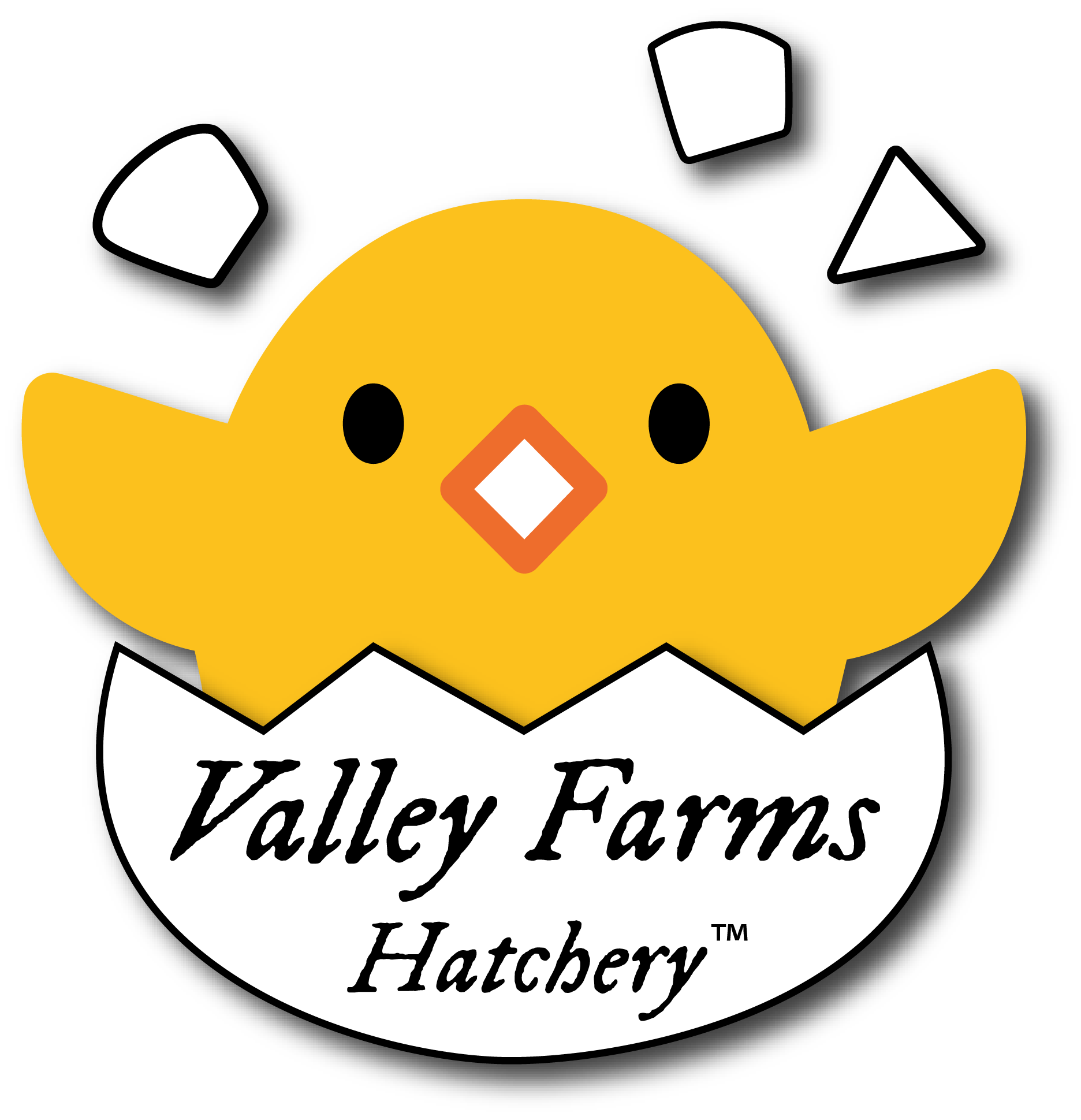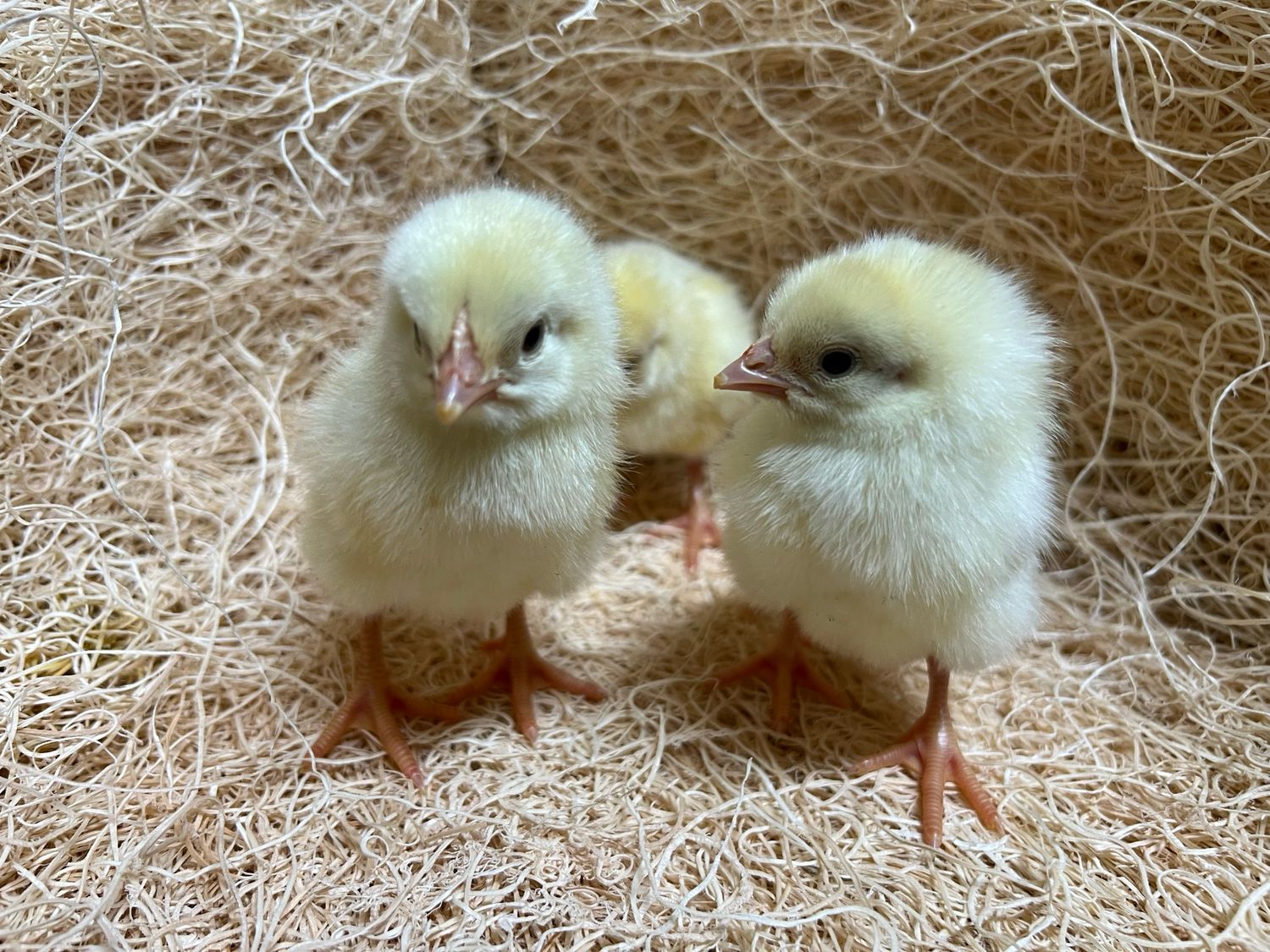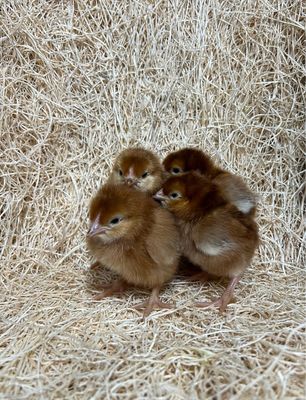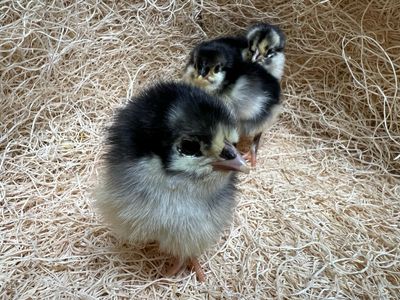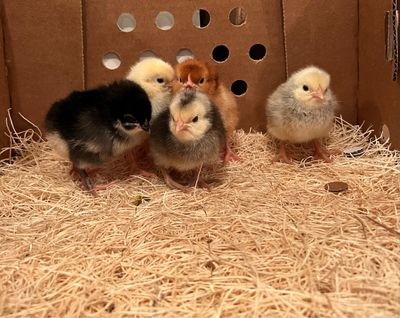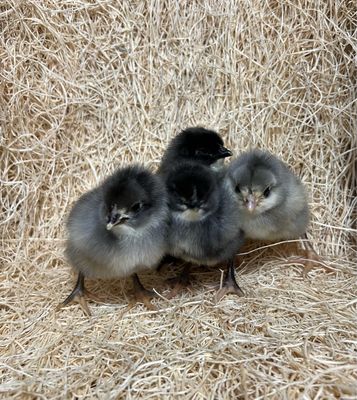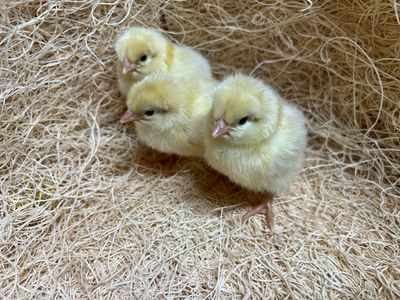🐣 NOW ACCEPTING 2026 PRE-ORDERS 🐣
🚨 A NEW USPS SURCHARGE FOR LIVE CHICKS WILL AFFECT THE COST OF SHIPPING 🚨
▶️ SEE DETAILS HERE ◀️
Cornish Cross Broiler Chicks
Our Cornish Cross Broilers are fast-growing, feed-efficient meat birds developed from top commercial genetic lines, including Ross, Cobb, and Hubbard. Known for their excellent breast meat yield, uniform size, and calm temperament, these broilers are ideal for small farms, homesteaders, and pasture-based operations seeking consistent and tender table birds. Valley Farms Hatchery primarily produces the Ross 308 strain, but if your farm requires a particular strain, please call us to where we can assist.
With proper management, Cornish Crosses reach 5–6 pounds in just 6 to 8 weeks, producing flavorful, high-quality meat that rivals store-bought poultry—without the need for large-scale infrastructure.
With care and attention, our Cornish Cross Broilers deliver premium meat quality, fast growth, and outstanding feed-to-meat conversion. Whether for personal use or market production, they bring commercial performance to your farm—powered by the genetics trusted by producers worldwide.
Feeding & Care Tips for Cornish Cross Broilers
1. Feed Program:
- Week 1–3: Use a 22–24% protein broiler starter feed to support rapid early development.
- Week 4–6+: Transition to an 18–20% grower/finisher feed to promote steady weight gain and muscle development.
- Optional (Final Week): A 16–18% protein finisher feed can be used to improve meat texture and reduce fat prior to processing.
2. Feed Management:
- Use a 12 hours on / 12 hours off feeding schedule starting around week 2 to reduce the risk of leg problems, ascites (water belly), and heart strain caused by overly rapid growth.
- Scatter feed in multiple feeders to reduce competition and promote even growth.
3. Water:
- Provide clean, fresh water at all times, as broilers consume a lot of water, especially during hot weather and periods of rapid growth.
- Use nipple drinkers or regularly cleaned open waterers to reduce contamination and moisture buildup.
4. Brooder Setup (First 2–3 Weeks):
- Start with a brooder temperature of 90–95°F, reducing by 5°F per week until birds are fully feathered.
- Use absorbent bedding (pine shavings, not cedar) and ensure it stays dry to avoid foot and leg problems.
5. Housing & Space:
- Brooder space: Minimum 0.5 sq ft per bird.
- Grow-out space: Aim for 1.5 to 2 sq ft per bird in pens, or more if pastured.
- Ensure good airflow, dry litter, and protection from predators and extreme weather.
6. Health & Monitoring:
- Watch for signs of leg weakness, panting, slow movement, or disproportionate growth—these can indicate overfeeding or poor ventilation.
- Regularly clean feeders and waterers, and rotate pastures or move pens to keep the environment clean.
If you have never ordered Cornish Cross before, we highly recommend checking out this care video from KC Farms. https://youtu.be/jh9ip0zHiG0
